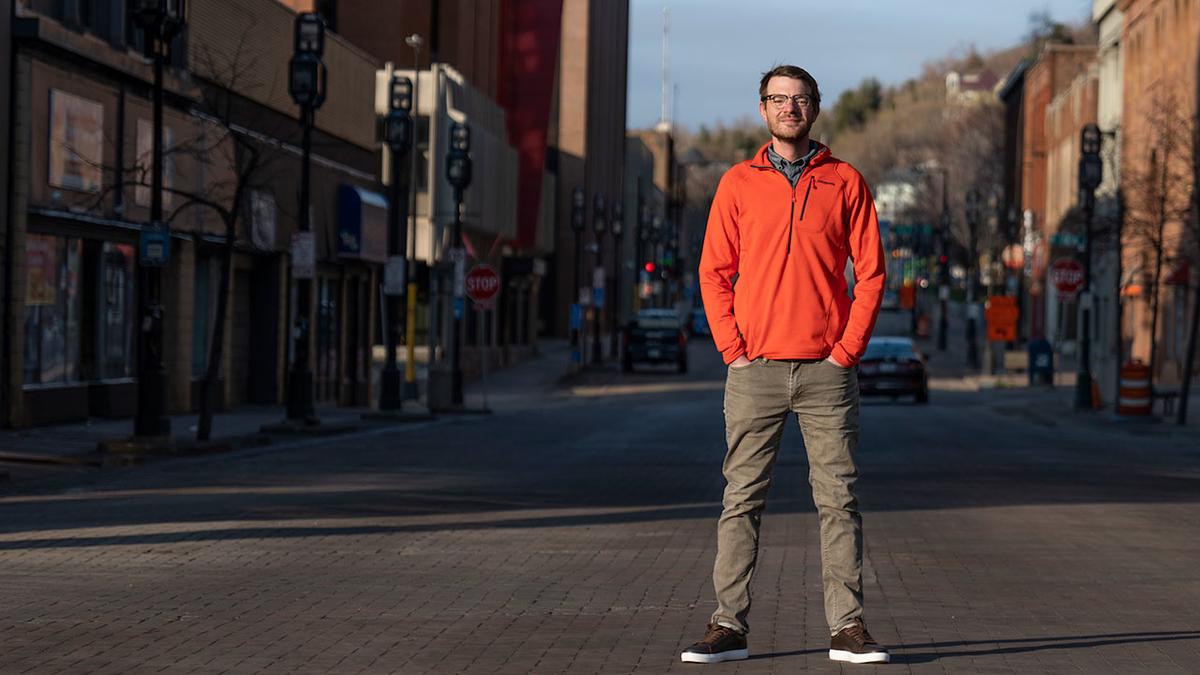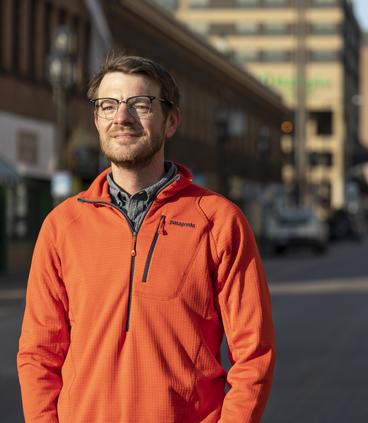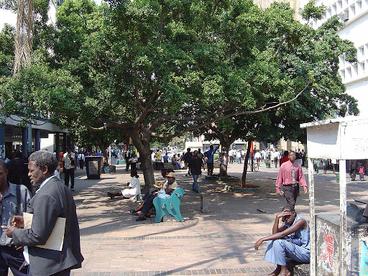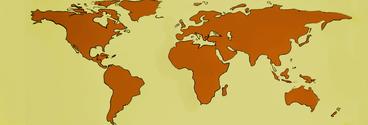Jeremy Youde is no stranger to the field of global health. He’s been studying the challenges for nearly two decades. In addition to his position as the dean of UMD College of Liberal Arts, he is the current chair of the Global Health Section of the International Studies Association (ISA) and has an international reputation for making sense of global health politics. His 2018 book, Global Health Governance in International Society is noted for analyzing the core debates within the discipline. In this interview, held in late-April 2020, Youde answers UMD's questions about the COVID-19 pandemic and its developments around the globe.
Tell us about your experience with Africa and HIV/AIDS.
“I started off by studying HIV-AIDS in Zimbabwe in 1998 and my work evolved from there. It was my semester abroad [as an undergraduate student at Grinnell College] and we were studying in Harare, the capital city.
“This was a country that had gotten majority rule about less than 20 years earlier. The people were faced with so many questions because Zimbabwe’s adult HIV prevalence rates were about 20%. What was it going to mean for a country that is trying to democratize and that was trying to set up an economy? How could a country assert itself as a strong independent nation, when 20% of the people that you would expect to be leaders are suddenly dying prematurely? How were they going to keep that basic governmental and societal stability going? HIV was changing Zimbabwe's own expectations for lives and families, and the lives of children.”
Youde met a doctor working for United States Agency for International Development (USAID) who was overseeing their HIV/AIDS programming in Zimbabwe.
“His office was a few floors up and we had a nice view of the skyline and the city. He was talking about the U.S. government’s role. The U.S. was putting plans together, setting the groundwork for some of the policy responses they were formulating.
"He was very worried. Zimbabwe had been one of the economic engines for the region. It was the bread basket for Southern Africa and there had been a period of euphoria because there had been so many opportunities. He was gathering information about how policy makers in Africa and the U.S. were viewing the situation. The health of the Zimbabwe people, especially the leaders, was going to have an effect on national politics.
"I was looking out on the street on a typical downtown workday. There were a lot of people. It was very vibrant and colorful, with cars and buses and lots of hustle and bustle. But we were having this very sobering conversation about what AIDS was going to do to that vibrancy.
"I imagined the unseen virus, and the consequences. I imagined silent, empty streets. When I look back on that moment, 22 years ago, I was imagining what I’ve seen on my recent morning runs in downtown Duluth… almost no people at all.
How do you make sense of the response?
“Health is not just about science and medicine. So when we talk about making policy, we’re talking about the larger world in which we live. That makes it that much more complicated. We have to think about the economic consequences and social consequences. We need to recognize that different groups have different experiences.
“If we look at the countries that responded very quickly to the pandemic, it was because they had experience with these sorts of outbreaks or they anticipated them. Many had seen this before, and they’d seen the consequences when they hadn't acted. Some areas had an adequate number of available beds. They had protective gear and medical equipment stockpiled and ready to go, just in case they needed to deploy them.
“There’s tremendous value in preparing. Coronavirus is not the last pandemic we're going to experience.
“As much as we need stockpiles, we need strong public health programs. We see now how absolutely vital it is that we have groundwork laid. We need to run simulations so the various offices that will interact together can coordinate their response."
Why is the response so varied?
“Because public health in the United States is such a decentralized system, much of it is based at the state and local level. These leaders, for the most part, have been really good about being very consistent about the messaging they’re providing. They tell us what information they use to make the decision and what the data show us.
"It's not always easy. It's like we're trying to fly the plane and build it at the same time.
“It’s really important that we have consistent messages coming from political leaders, the health industry, corporate leaders, and other sources. The long, nearly two week, incubation period for this virus means we have to shelter in place in order to slow the spread.
“Consequently, the government is asking people to do extraordinary things… such as staying home from work. We’ve seen millions and millions of people going on unemployment and we are experiencing an incredible disruption to our community and our lives.
“To ask people to shelter in place is a big ask; it’s imperative that people get consistent messaging to back that up... and they have that coming from trusted sources. Leaders need to say they understand the pain we’re going through, but they also understand that this relatively short-term pain will have greater benefits later down the road. And, if we don’t suffer a little now, there will be even worse problems for us.”
Why is there so much concern about borders?
“Viruses don’t care about borders, viruses don’t care about our economy. There is nothing static about this virus and that complicates things that much more. Governments have to respond to health issues that cross borders. This virus is like a forest fire. It's difficult to get cooperation in the best of circumstances when we're talking about economic policy and trade relationships. But when we are talking about health, it can become that much more complicated.
“In my own work, I look at what happens at the national level, the government level, the international level, and with the World Health Organization. Disputes arise about sharing resources, closing trade, and closing borders. Decisions about health oftentimes will reflect these broader political, societal, and economic situations. That happens on the international scale but it also happens within countries. In the United States, because we are such a decentralized system, we see different policies for different states… and we see how each policy has consequences for the eventual outcomes.
“Let’s look at trade. Steel is steel. It doesn’t have its own volition. But when we are talking about viruses, or bacteria, they have their own system. Viruses don’t care about our calendars, they don’t care about if we're going to have baseball this summer.
“We still don’t have treatments. We don’t have a cure. We don’t have a vaccine. We're still learning a lot about how it’s transmitted. We can make all the policies we want, but the virus isn't contained yet.
“We are going to have to adjust policies because the situation is changing. We aren’t in control when there is something out there that’s doing its own thing... especially when it’s something like COVID-19.”
Do you have any reflections to share?
“When I was working in Zimbabwe, if you'd have asked me that this was going to be my career, I would have had no clue. And, I would have never predicted a pandemic that would actually close things down like this."
About the College of Liberal Arts
About Jeremy Youde



